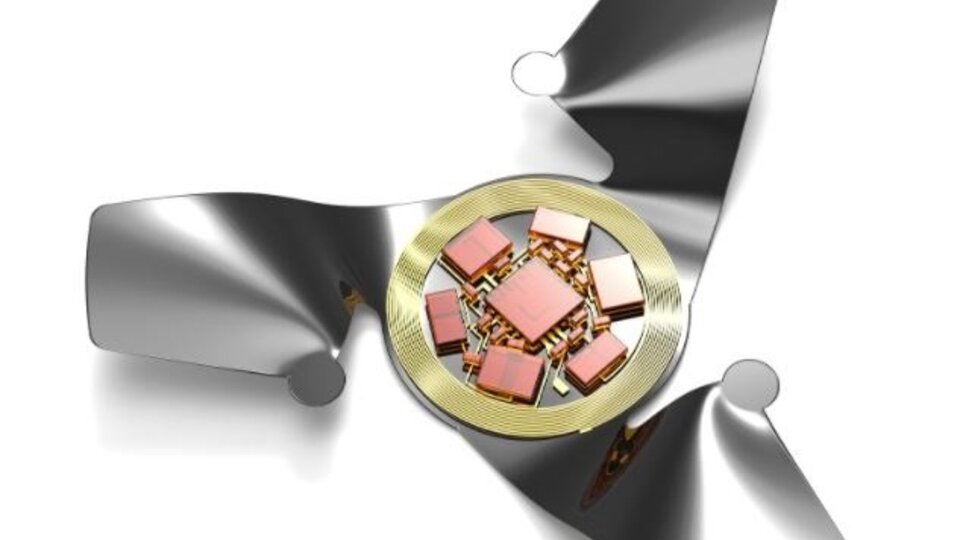Northwestern University engineers have added a new feature to electronic microchips: the ability to fly.
About the size of a grain of sand, the new flying microchip (or “microflier”) has no engine: it flies in the wind and spins like a helicopter through the air.
Engineers further optimized the microflier aerodynamics to ensure that, when launched from a high altitude, it falls at low speed in a controlled manner.
This stabilizes your flight, ensures dispersion over a wide area and increases the amount of time you stay in the air, ideal for monitoring airborne diseases and pollution.
“Pollution; surveillance and monitoring”
“Our goal was to distribute highly functional miniature electronic devices for monitoring pollution; population surveillance or disease monitoring,” said Professor John A. Rogers of the McCormick School of Engineering and Applied Sciences, in a statement, who led the development of the device .
“We managed to do this using ideas inspired by the biological world. Over billions of years, nature has developed seeds with highly sophisticated aerodynamics. We’ve borrowed these design concepts, adapted and applied them to electronic circuit platforms,” said Rogers, a pioneer in bioelectronics.
defeating nature
To design the microfliers, the Northwestern team studied the aerodynamics of various plant seeds, taking more direct inspiration from the tristelateia plant, a vine with star-shaped seeds. Sadlathea seeds have sharp wings that catch the wind to drop with a slow turn.
Rogers and his team have designed and built many different types of microfliers, including one with three wings, optimized for shapes and angles similar to the wings of a tristelate seed.
“We believe we beat nature”Rogers said. “Device miniaturization represents the dominant development path in the electronics industry, where sensors, radios, batteries and other components can be built in ever smaller dimensions,” he added.
.
